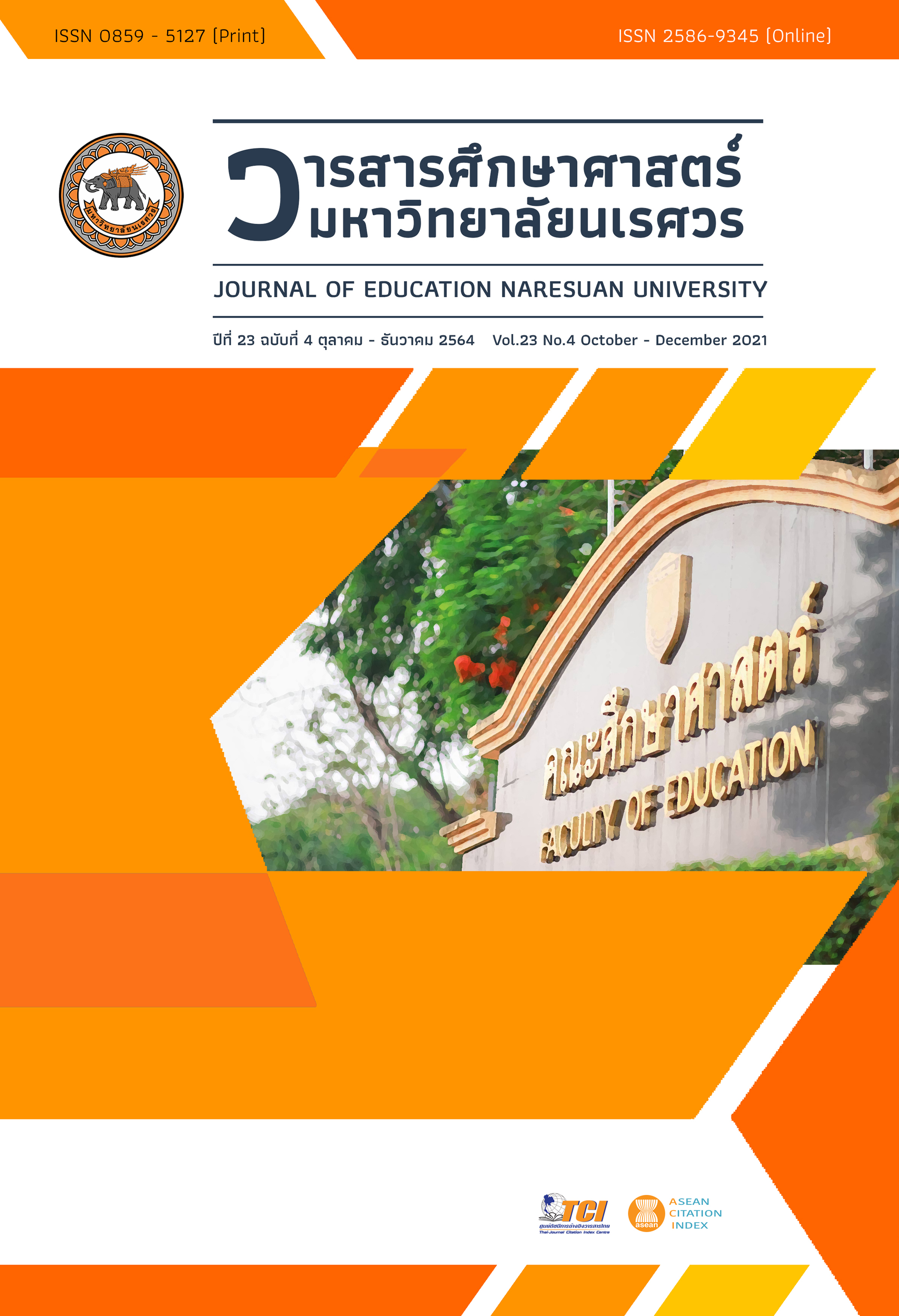APPROACHING BOARD GAMES TO SCHOOLS การนำเกมกระดานเข้าสู่โรงเรียน
Main Article Content
Abstract
Board games can be used as a learning tool. They provide both education and entertainment in one package. Among countless game-based learning research, most studies aimed at digital games because of education technology trend this day. There are many digital game research already, while studying tradition game like a board game still in shade. Digital disruption caused unadaptable media, business, and innovation to became extinct. Surprisingly, tradition board games still being popular and constantly grow. Since reputation of video games was suffered by media, make parents feel worried when they observe their children playing video games, even they are education games. On the contrary playing chess is more preferred. Approaching board games to the learning environment should be more focus subject to teachers and educators. This article is introductory to the benefit of using board game as a learning tool, how to choose and use an existing board game, both education and entertainment, into a classroom and a school library, and how to design a new one. Finally, I presented a review of existing studies of famous tradition commercial board game liked Snakes and Ladders which was used as learning tools.
Article Details
The owner of the article does not copy or violate any of its copyright. If any copyright infringement occurs or prosecution, in any case, the Editorial Board is not involved in all the rights to the owner of the article to be performed.
References
Anggraheni, N. S., Hidayah, N., & Shawmi, A. N. (2019). Developing red-white monopoly games through integrative thematic learning in the primary school. AL IBTIDA: Journal Pendidikan Guru Mi, 6(1), 49-62.
Bolstad, R. (2018). Researching game-based learning practices in Aotearoa New Zealand. Set: Research Information for Teachers, 3, 4-11.
Copeland, T., Henderson, B., Mayer, B., & Nicholson, S. (2013). Three different paths for tabletop gaming in school libraries. Library Trends, 61(4), 825-835.
Charoenwanit, S. (2014). Game addiction behaviors: Impacts and preventions. Science & Technology Asia, 22(6), 871-879. [in Thai]
Deshmukh, S. V. (2017). Educational game approach for awareness about consumer responsibilities. International Journal of Home Science, 3(1), 287-290.
Ejike, C.U., Oluwole, A.S., & Mogaji, H.O. (2017). Development and testing of Schisto and Ladders™, an innovative health educational game for control of schistosomiasis in schoolchildren. BMC Research Notes, 10, 236. https://doi.org/10.1186/s13104-017-2545-5
Gough, C. (2018). Chutes and ladders began as a game to teach morality 2,000 years ago. Retrieved March 1, 2020, from https://curiosity.com/topics/chutes-and-ladders-began-as-a-game-to-teach-morality-2000-years-ago-curiosity/
Hamari, J., Shernoff, D. J., Rowe, E., Coller, B., Asbell-Clarke, J., & Edwards, T. (2016). Challenging games help students learn: An empirical study on engagement, flow and immersion in game-based learning. Computers in Human Behavior, 54, 170-179.
Hawkinson, E. (2013). Board game design and implementation for specific learning goals. The Asian Conference on Language Learning 2013 (pp. 317-326). Osaka, Japan: International Academic Forum.
Hill, C. (2016). Play on: The use of games in libraries. Journal of the Association of Christian Librarians, 59(1), 34-42.
Koehler, M. J., Greenhalgh, S. P., & Boltz, L. O. (2016). Here we are, now entertain us! a comparison of educational and non-educational board games. In G. Chamblee & L. Langub (Eds.), Proceedings of Society for Information Technology & Teacher Education International Conference (pp. 567-572). Savannah, GA, United States: Association for the Advancement of Computing in Education (AACE).
Klanpoomsri, Y., Watanapa, A., Ruayruay, E., & Wiyarat, W. (2017). Changing classroom to active learning by facilitator approach in industrial engineering subject. Walailak Journal of Learning Innovations, 3(1), 5-28. [in Thai]
Laski, E. V., & Siegler, R.S. (2014). Learning from number board games: You learn what you encode. Developmental Psychology, 50(3), 853–864.
LilScribbyB. (2015). How to design "board" games. Retrieved June 6, 2020, from https://www.instructables.com/id/How-To-Design-Board-Games/
Mayer, B., & Harris, C. (2010). Libraries got game: Aligned learning through modern board games. Chicago: American Library Association.
Mingren, W. (2018). The origin of snakes and ladders: A moral guide of vice and virtue. Retrieved March 1, 2020, from https://www.ancient-origins.net/history-ancient-traditions/origin-snakes-and-ladders-moral-guide-vice-and-virtue-0010012
Petsangsri, S., & Sitthimongkolchai, R. (2019). Play-based learning. Journal of Industrial Education, 18(3), 1-6. [in Thai]
Poondej, C., & Lerdpornkulrat, T. (2016). Learning management with the gamification concept. Journal of Education Naresuan University, 18(3), 331-339. [in Thai]
Promsri, C. (2016). Using board games for developing natural disaster preparedness awareness. Panyapiwat Journal, 8(3), 265-279. [in Thai]
Shaenfield, D. (2019). Chutes and ladder. In K. Schrier (Ed.), Learning, Education & Games, Volume 3 (pp.103-107). Pittsburgh, PA, Carnegie Mellon University: ETC Press.
Shitiq, H. A. A. H., & Mahmud, R. (2010). Using an edutainment approach of a snake and ladder game for teaching Jawi Script. 2010 International Conference on Education and Management Technology (pp. 228-232). DOI: 10.1109/ICEMT.2010.5657667
Siegler, R. S., & Ramani, G. B. (2009). Playing linear number board games but not circular ones improves low-income preschoolers’ numerical understanding. Journal of Educational Psychology, 101(3), 545-560.
Soetendorp, R., & Meletti, B. (n.d.). Education. Retrieved June 6, 2020, from https://www.copyrightuser.org/understand/exceptions/education
Taspinar, B., Schidt, W., & Schuhbauer, H. (2016). Gamification in education: A board game approach to knowledge. Procedia Computer Science, 99, 101-116.
Vygotsky, L. S. (1978). Mind in society. Cambridge, MA: Harvard University Press.
Willet, K. B. S., Moudgalya, S., Boltz, L. O., Greenhalgh, S. P., & Koehler, M. J. (2018). Back to the gaming board: understanding games and education through board game reviews. Proceedings of Society for Information Technology & Teacher Education International Conference (pp. 495-503). Washington, DC: Association for the Advancement of Computing in Education (AACE).
Widowati, E., Hendriyani, R., Nugroho, E., & Qin, A. L. W. (2018). Children’s safety education model through child-friendly games. Journal Kesehatan Masyarakat, 14(2), 157-162.


